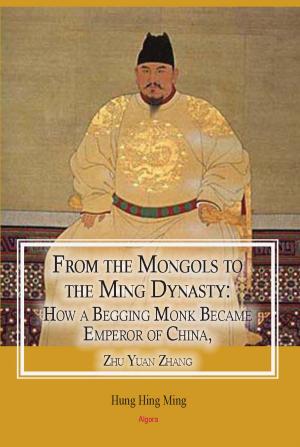| Author: | Quentin R. Skrabec, Jr. | ISBN: | 9780875865089 |
| Publisher: | Algora Publishing | Publication: | December 15, 2009 |
| Imprint: | Algora Publishing | Language: | English |
| Author: | Quentin R. Skrabec, Jr. |
| ISBN: | 9780875865089 |
| Publisher: | Algora Publishing |
| Publication: | December 15, 2009 |
| Imprint: | Algora Publishing |
| Language: | English |
One of the most successful industrialists in America, George Westinghouse was a wizard who took a much different approach than Thomas Edison. Westinghouse became a manager of innovation. He was not only an inventor in his own right, but the orchestra leader of a symphony of ideas. Westinghouse developed the corporate model of invention and research.
His innovations allowed Westinghouse to take the lead in electrical distribution. While Edison electrified New York City, the nation turned in favor of the AC current system of Westinghouse. He was a pioneer in pension plans and in planned communities for workers. His natural gas distribution system did more than Carnegie's capital to make Pittsburgh the Steel City.
The panic of 1907 changed Westinghouse. It took the energy out of the industrial lion and resulted in a personal depression, which led to his death in1914.
Samuel Gompers said that, if industry had been run by men like Westinghouse, there would have been no need for unions. Employees loved the gentle genius who worried about them routinely. Over 55,000 employees voluntarily collected money for a memorial to Westinghouse in 1955; this memorial would have been the one he cherished the most.
One of the most successful industrialists in America, George Westinghouse was a wizard who took a much different approach than Thomas Edison. Westinghouse became a manager of innovation. He was not only an inventor in his own right, but the orchestra leader of a symphony of ideas. Westinghouse developed the corporate model of invention and research.
His innovations allowed Westinghouse to take the lead in electrical distribution. While Edison electrified New York City, the nation turned in favor of the AC current system of Westinghouse. He was a pioneer in pension plans and in planned communities for workers. His natural gas distribution system did more than Carnegie's capital to make Pittsburgh the Steel City.
The panic of 1907 changed Westinghouse. It took the energy out of the industrial lion and resulted in a personal depression, which led to his death in1914.
Samuel Gompers said that, if industry had been run by men like Westinghouse, there would have been no need for unions. Employees loved the gentle genius who worried about them routinely. Over 55,000 employees voluntarily collected money for a memorial to Westinghouse in 1955; this memorial would have been the one he cherished the most.















